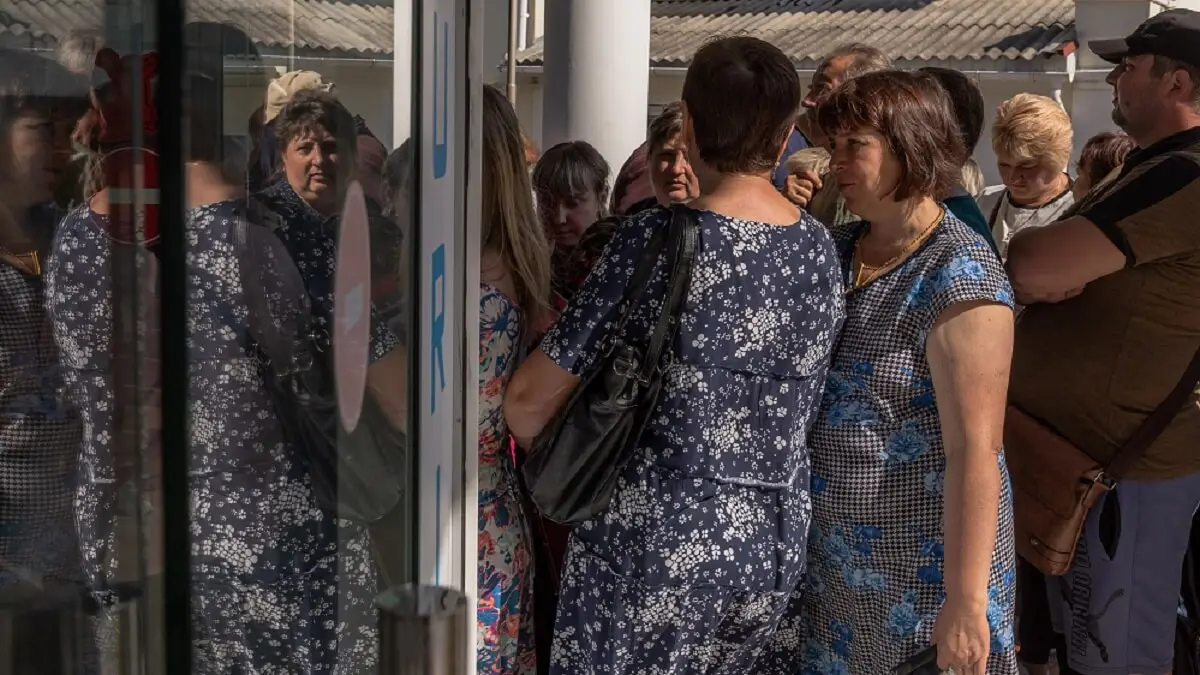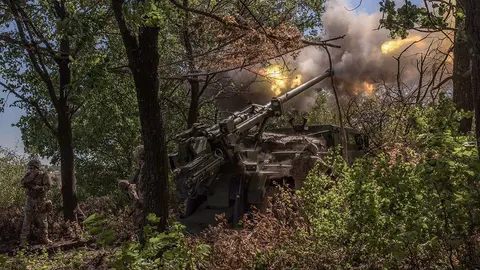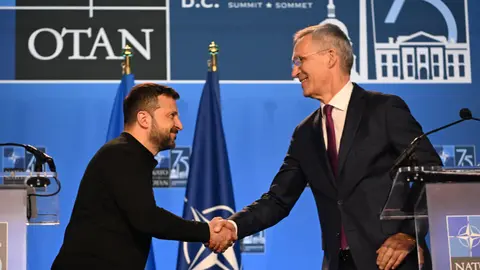Russia steps up evacuations over Ukrainian incursion

Russia on Monday ordered more evacuations of civilians in the Belgorod and Kursk regions bordering Ukraine, almost a week after the start of an unprecedented incursion by Kiev troops into its territory.
Ukraine launched a surprise large-scale operation in Kursk last week, two and a half years after the start of the invasion of Ukraine and after months of retreat from Moscow's forces on the eastern front.
The offensive, which has sent tens of thousands of people fleeing, is the largest attack by a foreign army on Russian territory since World War II.
"The aim is to stretch the enemy's positions, inflict maximum losses, destabilise the situation in Russia, because they are unable to protect their own borders," a senior Ukrainian security official said on Saturday.
The official, who spoke on condition of anonymity, said that "thousands" of Ukrainian soldiers were taking part in the operation.
The Russian military acknowledged on Sunday that Ukraine had penetrated deep into its territory by reporting that it had prevented "breakthrough attempts" in three localities about 30 km from the border with the former Soviet republic.
According to the Russian authorities, more than 76,000 people living in the Kursk region were evacuated on Saturday, and on Monday acting governor Alexei Smirnov announced that the evacuations would be extended to the Belovsky district, home to nearly 15,000 people.
The Belgorod authorities also announced evacuations of one district in the "alarming" situation, although fighting has not reached the region.
"There is enemy activity on the border of the Krasnaya Yaruga district," Governor Vyacheslav Gladkov said in Telegram.
"For the safety of the life and health of our population, we are starting to move" the inhabitants of that district, he added.
The Russian defence ministry said on Monday that its air defence systems destroyed 18 Ukrainian drones overnight, 11 of them over the Kursk region.
Reception of displaced persons
In Moscow, the reception of displaced persons has been organised for several days.
Daria Chistopolskaya, a 28-year-old midwife, came to deliver toys that she would otherwise have given to relatives or kept in her family's second home.
"The state does not care enough about these people, and people should help each other in these situations," she told AFP.
Ukrainian President Volodymyr Zelensky on Saturday for the first time admitted his country's involvement in the Russian incursion, saying it was aimed at "shifting the war to the aggressor's territory".
The assault on the Kursk region was Kiev's biggest and most successful cross-border offensive so far.
In this context, the Ukrainian authorities called for the evacuation of at least 20,000 civilians from the Sumy region.
At an evacuation centre in the regional capital of the same name, Mykola, a 70-year-old pensioner who left his village - Khotyn, some 26 km from the Russian border - said on Sunday that the offensive on Russian territory gave him a dose of encouragement.
"Let them find out what it is. They don't understand what war is. Let them try it," he said.
Russia imposed a state of emergency in the Kursk area and announced the start of an "anti-terrorist operation" there and in two other border regions.
Reinforced morale
On Sunday night, both Kiev and Moscow accused each other of a fire at the Zaporiyia nuclear power plant, which was "extinguished", according to a Russian occupation official in southern Ukraine, Vladimir Rogov.
The International Atomic Energy Agency (IAEA), which has a team of experts on site, said "no nuclear safety impact was reported".
Russia invaded Ukraine in February 2022 and has been on a relentless offensive ever since, occupying swathes of eastern and southern Ukraine and subjecting Ukrainian cities to daily artillery, missile and drone attacks.
Analysts believe Kiev probably launched the assault to relieve pressure on its outnumbered and outgunned troops elsewhere on the front.
But so far, the incursion has not weakened Russia's offensive in eastern Ukraine, where Moscow has been gaining ground for months, the senior Ukrainian security official told AFP.
The official admitted that Russia would sooner or later "stop" Ukrainian troops in the Kursk region, although the attack "caught the Russians off guard" and "boosted the morale" of Kiev's forces.
He also claimed that Russia, in response to the raid, is preparing a massive missile attack on "command centres" in Ukraine and assured that Kiev had warned its Western allies of the operation.
The Ukrainian official further assured that Kiev is "strictly respecting humanitarian law" in its offensive and has no intention of annexing the areas it currently occupies.










